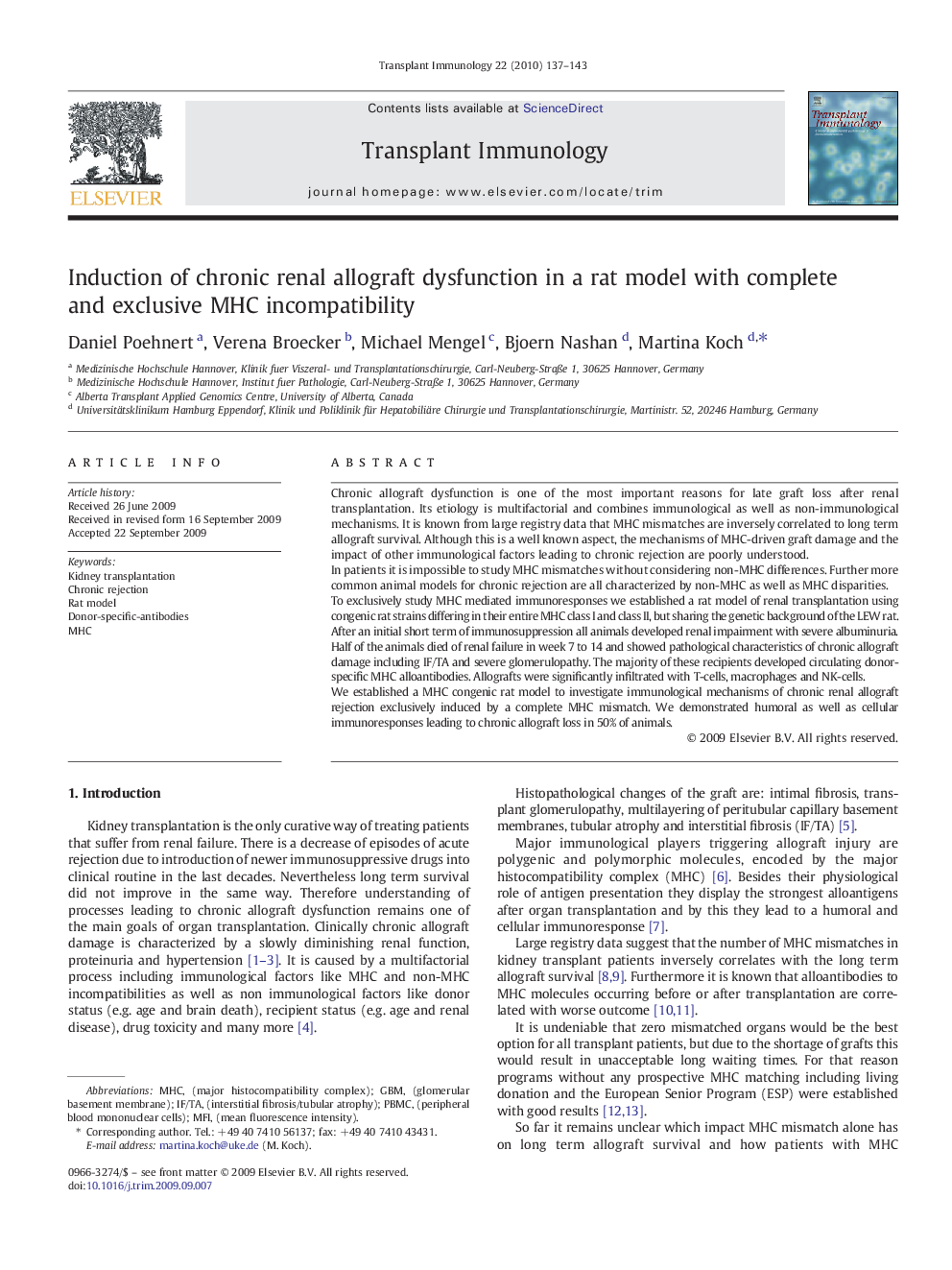| Article ID | Journal | Published Year | Pages | File Type |
|---|---|---|---|---|
| 3392360 | Transplant Immunology | 2010 | 7 Pages |
Chronic allograft dysfunction is one of the most important reasons for late graft loss after renal transplantation. Its etiology is multifactorial and combines immunological as well as non-immunological mechanisms. It is known from large registry data that MHC mismatches are inversely correlated to long term allograft survival. Although this is a well known aspect, the mechanisms of MHC-driven graft damage and the impact of other immunological factors leading to chronic rejection are poorly understood.In patients it is impossible to study MHC mismatches without considering non-MHC differences. Further more common animal models for chronic rejection are all characterized by non-MHC as well as MHC disparities.To exclusively study MHC mediated immunoresponses we established a rat model of renal transplantation using congenic rat strains differing in their entire MHC class I and class II, but sharing the genetic background of the LEW rat.After an initial short term of immunosuppression all animals developed renal impairment with severe albuminuria. Half of the animals died of renal failure in week 7 to 14 and showed pathological characteristics of chronic allograft damage including IF/TA and severe glomerulopathy. The majority of these recipients developed circulating donor-specific MHC alloantibodies. Allografts were significantly infiltrated with T-cells, macrophages and NK-cells.We established a MHC congenic rat model to investigate immunological mechanisms of chronic renal allograft rejection exclusively induced by a complete MHC mismatch. We demonstrated humoral as well as cellular immunoresponses leading to chronic allograft loss in 50% of animals.
